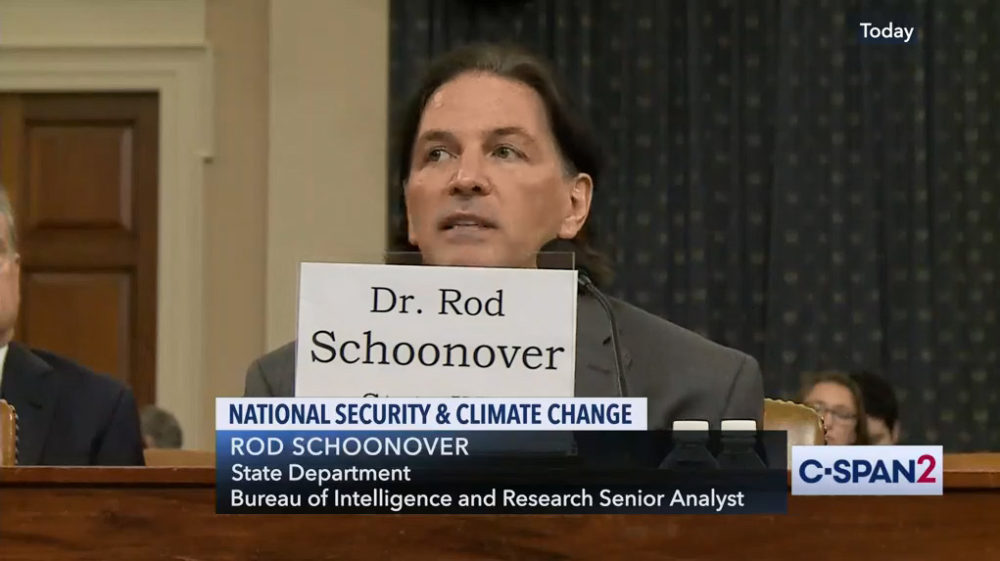Think of it. You are an accomplished scientist in academia and decide to serve your country by going into public service. You do your job, advising the State Department, the Administration and Congress on critical security risks like climate change, based on a huge amount of well-established evidence. But then the White House censors your testimony to the House of Representatives Intelligence Committee, apparently on the theory that if it doesn’t get in the Congressional Record the risks will dissipate. What do you do?
Dr. Rod Schoonover, a senior intelligence analyst at the State Department subjected to exactly those circumstances, today decided to resign rather than be prevented from doing the job he entered public service to do. Let’s be clear. His job was not to repeat political talking points for the Administration. There are plenty of political appointees in the federal government who can do that. That is their job. His job was to analyze information and tell the Administration, Congress and the American people what it means based on his scientific and intelligence expertise. And the information is telling Dr. Schoonover and many others inside and outside the US government that climate change poses grave risks to the country. The information basis? The US National Climate Assessment (here are three posts about it from my colleagues), produced by literally hundreds of scientists inside and outside of government.
Perhaps the White House is happy Dr. Schoonover resigned. But I am not. I don’t know him personally but certainly respect his expertise. And I believe the State Department needs such expertise. Our credibility in the world and our ability to build strong alliances depend upon it. We can’t deny fundamental evidence and expect others to take us seriously, let alone solve real problems. More importantly, I think the federal government broadly, in all its agencies, needs highly trained professionals who will put their skills to use for the American people. To tell us the truth, unvarnished by what is politically expedient. If our public policies and decisions are not based on science, they will be wholly political. That can’t turn out well.
No doubt Dr. Schoonover will go on to continue to do good work and contribute to science and society. And so will many other scientists and professionals at all stages of their careers. But we should be encouraging them to engage in public service. Censoring a senior scientist’s work does just the opposite. We all lose out. That’s a damned shame, on this Administration.

